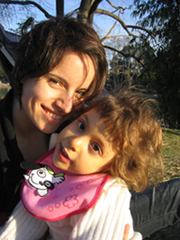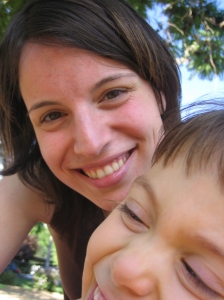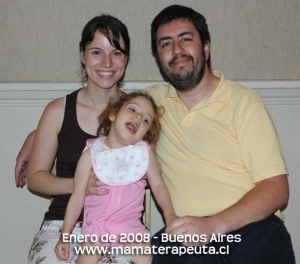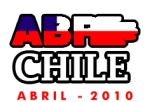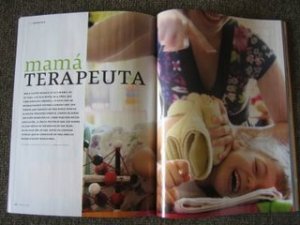Recently a friend of mine share a very interesting link titled “Ritalin, Prozac and other educative systems“. The comments recued the final sentence of this article: It’s easier to keep on with a routine, even though is painful, than to change and adapt oneself. Immediately I remembered something that the midwife of the neonatal unit told us, when Rocio was only a few weeks old: “She must adapt to your life, not the other way around”…
To me, at that moment, nurses, doctors and specialists known better, they were brilliant and I listened to them with all my attention. Back then I thought those words were very wise. However, I don’t remember having thinking in them ever again in this last five years, until now. I never again thought about the possibility that she was the one that to adapt herself to our lives.
How? Simple and obvious things like the house where we used to live and the car we had were not useful anymore. Others like the child care center just in front of our house didn’t accept her. Traditional schools don’t accept her. Traditional medicine hasn’t been a good choice either, at least to us. What I understood as healthy food wasn’t. A lot of the clothes that is sold don’t work for her, like coats, raincoats, girl shoes are impossible to wear for Rocio.
Neither were useful less tangible things like hopes, dreams and projects about my motherhood, how I was going to raise my children, dates, ideas, methods. I said children because before I sure wanted to have a few and one after another. Work planes were also changed. What I understood as “achievements” was redefined. The concepts of success and happiness also changed. Luckily also changed the few I knew about disability.
Was that a mistake? Should I have followed the midwife advice and let Rocío adapt to my life? Would that had been better for her? Would that had made her happier? Would I have shown more wisdom and maturity? Would that be real growth as a person? But… Would that adaption be possible? Wouldn’t it be denial?
Maybe I say this as personal defense, but I think this premise might be useful to many parents, but not to parents with children with special needs. Adaptation is a fundamental key, to forget our preconceived ideas. To learn and built again all what is needed. Maybe what it is hard to learn is when is it worth it to make the effort to “fit” in traditional structures and when the best benefit is out there. The problem is that all that is not traditional is more work for us.
This is why probably my friends, also mothers of SN children, emphasized that sentence “it’s easier to keep on with a routine, even though is painful, than to change and adapt oneself”. Sure it’s easier, to change and adapt seems like a colossal work when we think all that involves changing and adapting.But it is easier when we don’t feel we are alone…
Maybe the keyl is to pick our battles. We can’t fight them all… Some things shouldn’t changed in order tokeep some sanity. We can accept some things as they are and adapt them just a little. Some things are easier to change, but others we must change them and adapt radically. Even though it seems impossible, we’ll do it because it is our responsibility and we want to give the best to our children. We must change and adapt.
